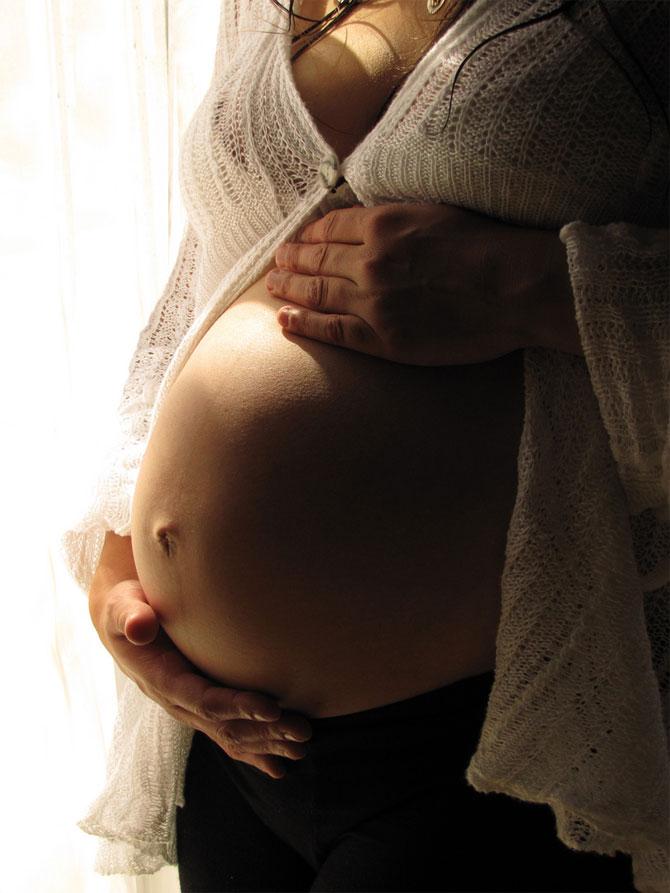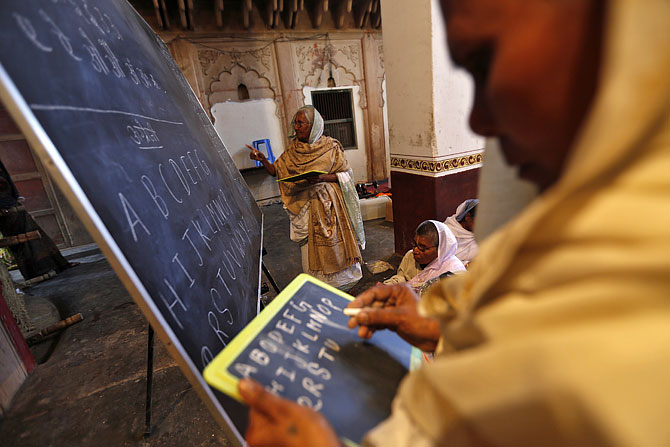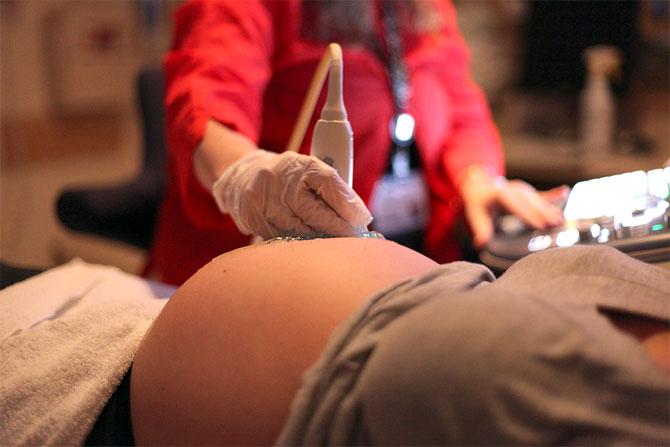 | « Back to article | Print this article |
The new India story: Delayed pregnancies, lower fertility
Why are several young couples in India delaying having their first child? We find out
After five years of marriage, Sunita Rajasekhar* gingerly brought up the topic of having babies. Her husband, who had married her on the condition that they wouldn't have babies, shot down the idea.
Sunita and her husband have been seeking a counsellor's help of to save their marriage.
Across urban India, their story is a common one with working couples.
Often, "since both (husband and wife) are career oriented, neither wants to give up their professions for kids," said Dr Namrata Kacchara, a senior gynaecologist at Paras Hospital in Gurgaon. "A better lifestyle and living conditions further puts them in a situation that they both have to work to make ends meet. There is a constant struggle between them as to who shall be doing what and to what extent."
It is also not unusual for such couples to change their mind later, pointed out Dr Firuza Parikh, Mumbai-based IVF (In Vitro Fertilisation) specialist, in an earlier interview with Rediff.com
"Many of these people who are double income and don't want children," Dr Parikh said, "by the time they are 37 and 38 they come back saying that look we thought we won't have children but I think it is time for us to have children."
By then, it is often too late to conceive naturally.
The new India story: Delayed pregnancies, lower fertility
Changing country, changing realities
India's Total Fertility Rate -- the average number of children expected to be born per woman during her reproductive years – stood at 2.5 in 2011, according to census figures. And that figure has been shrinking since the 1960s.
The TFR dropped 19 per cent between 2000 and 2010. Maharashtra, where it fell the most, registered a 26.9 per cent drop.
Various studies have suggested that female literacy is almost always inversely proportional to fertility rate. The more educated the woman, the higher are the chances of her not wanting a large family.
The latest census showed that female literacy rate (11.8 per cent) was growing almost twice as fast as the male literacy rate (6.9 per cent).
Diseases such as Polycystic Ovarian Disease, prevalent among three out of every five women, stress, sedentary living, smoking, alcohol consumption, obesity and factors like failed marriages and adjustment issues with spouse also contribute to falling fertility, said Dr Kacchara.
"The fall in fertility is not only related to women," she said. "Men are also equally to be blamed. The fall in men's sperm count, their fertility potency and (decreased) sexual desire is also due to stress and incorrect lifestyle habits."
She added, "Thermal emissions and other radiations from mobile phones and laptops further have an effect on fertility."
The new India story: Delayed pregnancies, lower fertility
Why are couples delaying pregnancy?
Dr Vimal Grover, a senior consultant in the Gynaecology and Obstetrics Department at Fortis Hospitals in Delhi, felt late marriages were one of the major causes for women delaying pregnancy.
"Earlier, women would have their first child well before they turned 30," Dr Grover said. "Today, many of them aren't even married by then. In the cases of smaller towns and villages, pregnancy is delayed because the menfolk are away from their wives, working in big cities."
Causes for delayed pregnancy vary across socio-economic classes.
According to Dr Kacchara, health and lifestyle issues are major reasons for delayed pregnancies among the rich. Among the less affluent, lack of money is a major cause.
Upward spiralling costs of living and family expectations also force women to think a number of times before they conceive.
"Often women force themselves into an unnatural abortion by taking incorrect medication or inflict self trauma to save costs and other related fallouts," Dr Grover said.
Predictably, for the middle class, career is a major deciding factor in starting a family.
"Both the husband and the wife are working and their aim is to have a good lifestyle," Dr Parikh said. "A number of times they do not want to take any responsibility and want to enjoy their hassle-free life."
Dr Grover pointed out that the time when a woman can have a serious go at her career coincides with her biological window too. It usually boils down to making a choice.
"Unlike in the past, husbands are not stubborn (about having a baby immediately after the wedding) and support their wives (in their careers)," she said.
Dr Parikh pointed at other factors, including lack of privacy, prevalent among the urban middle class.
Dr Kacchara agreed: "Bringing up a child is not easy. It includes frequent visits to doctors and expenses that aren't always covered by insurance… There is also a fear is there that these sacrifices will affect their careers and if husbands are not as committed towards bringing up the child, it doesn't make the whole process any easier."
Mumbai-based infertility specialist Dr Indira Hinduja said stress was a major factor.
"Think of it," she said, "You've put in some ten hours of work, you travel on the footboard of an overcrowded train, reach home, cook meals, complete some work you've brought home and then start over the next day. How can you even think of starting a family if you're living every day like this?"
The new India story: Delayed pregnancies, lower fertility
Delay now, worry later
The biggest problem with women in delaying childbearing," said Dr Parikh, "is that when one is finally ready to have a baby the body has shut down, the eggs have depleted and there are higher chances of miscarriage at a later age. The biological clock starts slowing down after 37."
Dr Grover added: "The older you grow the quality of your eggs reduces. "There is a good chance you won't get pregnant naturally and often you have little choice but opt for IVF. If you're older still, you'll have to go through more IVF cycles or depend on donor eggs or brace the possibility of surrogacy. Older mothers are bound have problems delivering and with breastfeeding."
After 35, she pointed out, "you run the risk of miscarriage as also that of having a child with chromosomal abnormalities such as the Down syndrome."
Dr Parikh believes that women rarely ever delay pregnancy out of choice and it might just be prudent for young women to freeze their eggs as early as possible, whether or not they're married.
"This is like a biological insurance for the many women who have not yet found the right partner or are on a career course," she said.
All the doctors advised women to "complete your family" before 32 years of age, pointing to factors like the high costs of IVF, the possible health hazards and the simple fact that delayed pregnancies mean you would probably not be able enjoy your child's growing up years because of your own advanced age.
"When you delay pregnancy," Dr Parikh said, "you are basically spending to achieve something you'd have conceived naturally when you're younger."
*Name changed upon request



